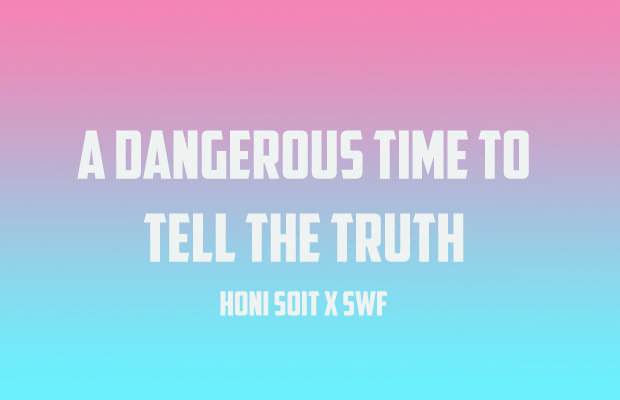“Journalism isn’t a profession…just a sickness in the head.” says Ece Temelkuran, one of Turkey’s most well-known political journalists. On a dewy morning at the Sydney Writers Festival, she is joined by Mexican reporter and author, Anabel Hernández and Iraqi-American writer, Dunya Mikhail. Led by the ABC’s Sophie McNeill, the panel compelled the audience in a discussion on the meaning of truth as journalists who have worked within oppressive states and a climate of rising corruption. Through humour and elaborate metaphors, the three distinct voices explored the dangers facing modern journalists who seek to report truth amidst the rise of authoritarianism and internet censorship.
The insanity of journalists described by Temelkuran is embodied by the joke that journalists are people who run towards an explosion instead of away from it. Temelkuran, who in 2011 lost her job as a TV presenter due to her criticisms against the Turkish government, portrays this journalistic insanity as the compulsive need to tell the truth, regardless of the consequences that come with it. The cost of truth is no foreign concept for Hernández or Mikhail either. In 1996, Milkhail, at the time a journalist for the Baghdad Observer, was forced to flee Iraq due to increasing aggravation from the Iraqi authorities for her writings. Similarly, Hernández now resides in Europe in exile after investigating the disappearance of 43 students done allegedly by law enforcement officials in Mexico.
When asked about the practicality of being journalists during such states of fear, the three provide an interesting variety of perspectives. Mikhail attributes her survival amidst the climate of censorship in Iraq to her roots of being a poet, saying “It was a good chance for me to be understood by the readers but not the censors”. Despite the dangers, Hernández spoke to her firm belief that the reporting of truth by journalists is especially vital in countries like Mexico, where there exists no accountable systems of justice to protect human rights. Temelkuran, on the other hand, described the process of dehumanising journalists by political powers. She conjectures that in order to imprison journalists, you must first dehumanise them to the point where no one no longer cares anymore.
The also panel raised an alarming warning regarding the state of journalism in the modern age. Mikhail, who now lives in the US, notes a phenomenon of self-censorship that “didn’t have home on ground as a building, but was in the air”. In the US, censorship has become an abstract of identity that belongs in codes of conduct that “precedes speech, as opposed to in Iraq where censorship follows speech”. Temelkuran extended her explanation to Australia, noting that there exists a silent consensus that normalises atrocities, such as in our coverage of the refugee crisis, that is “dangerous not only in terms of politics, but more-so in terms of morality”.
Also explored in detail is the subjectivity of truth within the age of internet journalism. When asked about whether online journalists now working without editorial controls are threatening the system or making it stronger, Temelkuran notes that there exists a deep connection between truth and shame. She says, “we’ve been going through a transformation of neo-ideas, neo-policies, new definition of humankind that is very limited” and that in this new definition “morality is not integral”. People no longer ask the question of whether they possess the knowledge or the authority to say something. In an already corrupted system, people are no longer ashamed of telling lies.
So how exactly can we ensure that the truth is told? Mikhail answers that in some ways we need to remain children, for when there is a naked emperor with people imagining his clothes in fear, a child who sees him would cry out that he is not wearing any clothes.
Despite the struggles facing journalism that range from authoritarian governments and self-censorship to a decline of journalistic integrity, this group of writers do not view it as a dangerous time to be telling the truth, so much as it is the right time. They emphasise that if we are to remain children, it is integral that we tell even the truths that we do not want to hear. For as long as there exists corruption, good journalism, through the treacherous lanes of hostility and censorship, will continue under those who are so impassioned in telling the truth that they are willing to bear the costs.





